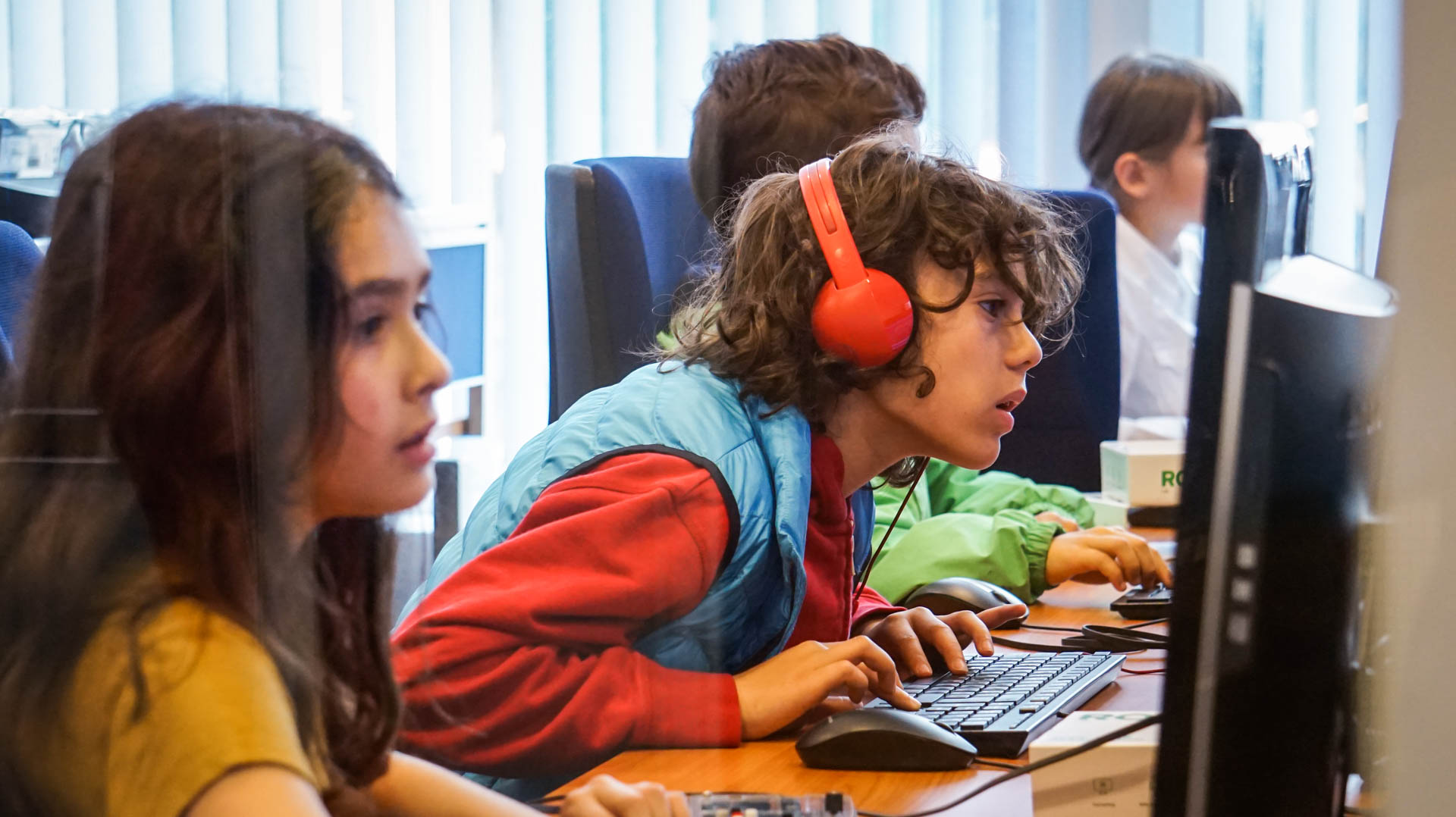In this condensed and stimulating four day STEM camp our participants will study the logic of mathematics and learn Robotics, Programming and Electronics that are taught on all our camps as an essential part of our focus on STEM subjects.
Robotics is a unique area of study, bringing together programming, problem solving, engineering, mathematics and physics. At its most basic level, robotics breathes life into programming, with pupils swiftly able to see the working results of their coding efforts. Each child has their own robot to work with and after coding and preparing it, pupils put them to the test, gaining confidence in their own abilities and becoming more open to trying out harder and more challenging tasks across the spectrum of engineering, programming, mathematics and sciences.
In Coding, we go beyond teaching specific languages to study computational thinking, algorithm construction and debugging, steering pupils to problem solve independently. Children are taught coding in sets appropriate to their level, age, academic year and experience. Please tell us about your child’s previous experience in coding when you book.
During this camp younger participants will also solve an engineering and electronics puzzle - how to make an ‘LED torch’. Once completed, campers can take this project home with them.
In Maths, we will explore the world of logic. By year groups, participants will study:
Years 3-6
Our younger pupils will study logic and learn how it is the main reasoning tool for solving problems. Camp participants will start by looking at traditional number puzzles, where they will need to sift through various options at each step of the problem solving process. They will then move to questions about relationships between different sets.
Finally we will embark on the famous mathematical problems about truth-telling knights and lying knaves. Knights and Knaves is a type of logic puzzle where some characters can only answer questions truthfully, and others only falsely. The name was coined by Raymond Smullyan in his 1978 work, ‘What Is the Name of This Book?’, though the concept is far older. These topics will provide a rich introduction to the rules of logic.
Year 7-11
The study of science and scientific progress requires more than just experiments and measurements. Deduction based on clear logic leads to theorems and principles that describe our world better than we were able to before. Camp participants in these year groups will look at a network of statements connected to each other by the principles of logic and how they can create abstract spaces that have consequences in our everyday life.
Pupils will learn by working with Dienes logic sets, visit the island of ‘lying knaves and truthful knights’ and find hidden errors in arguments. Is it true? Learn how to prove or disprove a statement, formulate your own conjecture and justify it - in other words, come and learn how to spin the fabric of science.
Format and fees for the senior face to face camp:
- pupil to teacher ratio of 6:1
- participants are taught in small groups, tailored by similarity of age and ability, in individual classrooms
- camp times: 10am to 3pm. Optionally, pupils can join from 9 to 10am for an extra hour of olympiad style maths and/or stay from 3 to 4pm for our tutored chess classes. There is a supplement of £25 for each additional class booked so a week of extra maths or chess is £100 per subject
- fees are £490 for four days. It is not possible to join for a shorter period

